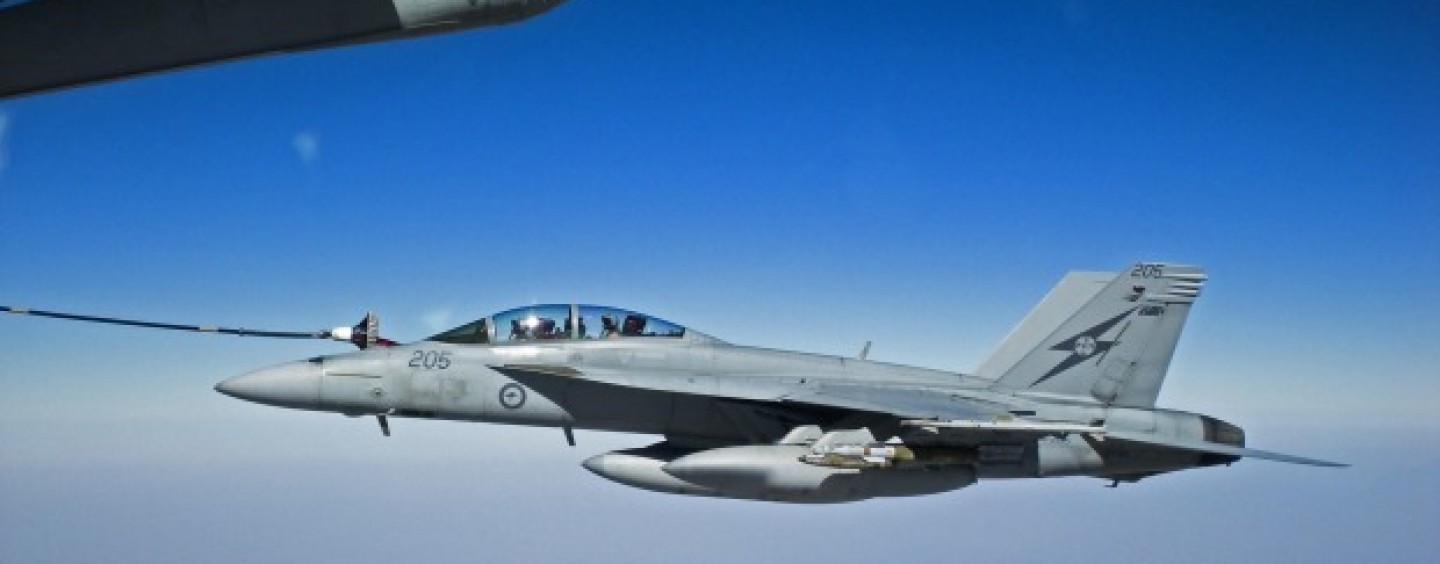
No, you can’t ‘bomb things better’
Thousands of miles from here a backward, misogynist, psychotic group of Sunni Muslims is terrorising all within their reach. Quite rightly, the Australian government has not committed a single soldier to counter this evil. I speak of Boko Haram in Nigeria, Chad and Cameroon.
A similarly backward, misogynist, psychotic group of Sunni Muslims called ISIS is carrying out its own reign of terror in Iraq and Syria. In response the Australian government has committed hundreds of Australian military personnel to confront ISIS in Iraq, and now Dan Tehan proposes extending this commitment to Syria.
What’s the difference between Boko Haram and ISIS?
ISIS has snappier promotional videos than Boko Haram, so attracts more Australian dickheads to join them. The reasonable response to this is to spy on the dickheads, throw the book at them if they break the law, prevent them getting on a plane, and put conditions on their return if they’re already in Iraq and Syria.
But it makes no sense to respond to these snappier videos by sending Australia’s military to Iraq or Syria. That is, unless the specific mission is to target ISIS’s cameras and video producers.
Some say the deployment of Australia’s military will help ensure that ISIS does not overrun Baghdad and Southern Iraq. There is little risk of this, as the Iran-backed Shia militias that control Baghdad and Southern Iraq are as well‑resourced as ISIS, and most of the people there are Shia.
Some say the deployment could help retake ISIS-held territory. But this can only go so far, as we’ve limited our military’s air strikes to Iraq, while ISIS is stronger in Syria. But more to the point, shrinking ISIS-held territory would be good only if what replaces it is better.
Unfortunately, this is questionable. The territory currently controlled by ISIS is populated by Sunnis, with some Shias. ISIS is making life hell for the Shias and numerous Sunnis, but has support from other Sunnis under its control.
If ISIS loses territory, it will be to Shia militias. The Shia population who have not already fled would get respite, but a new reign of terror could be imposed on the Sunni majority, irrespective of whether individual Sunnis supported ISIS or not. And in terms of being backward, misogynist and psychotic, the Shia militias are up there too.
There would be no secular, even‑handed, Western‑minded Iraqi government to ensure civility. Such a government does not exist, other than in the romantic imagination of wishful thinkers in the West.
THE PRICE OF OUR ALLIANCE
Some favour Australia’s military involvement as the price of our alliance with the US. I accept this, up to a point. If you’re an ally, then you can give the benefit of the doubt to your ally and join them in a fight, even though you suspect that they are making a mistake. And you can try to bring them to their senses behind closed doors.
But when your ally keeps getting into pointless fights, eventually it’s better to stand back. If we encourage the US to get into pointless fights, we’ll be to blame if the US is a weakened ally in the decades to come.
Several years ago a prominent observer of Middle East politics suggested America and its allies stay out of the growing Sunni–Shia conflict, but if they felt compelled to get involved, then arm whichever side was losing. In other words, with the Saudis, Egyptians and Turks increasingly involved via their proxies on one side and Iran via its proxies on the other, this is not our fight. Saving innocent civilians and preventing one side from overwhelming the other and committing a holocaust is as much as we can aspire to achieve.
But you won’t hear any of this from the government. All it wants to talk about is the risk of terrorism and how killing a few ISIS in Iraq will reduce that risk in Australia. And not wanting to be seen as soft on terrorism, Labor compliantly agrees.
For that reason I support a parliamentary vote on foreign deployments of Australian soldiers – if not beforehand then at the earliest opportunity thereafter. An informed parliamentary debate would be a service both to the nation and the soldiers we put in harm’s way.
Committing our armed forces to conflict is one of the most significant decisions a government can make. With the justification for engaging in Iraq so unconvincing, ultimate responsibility for such a serious issue should rest with Parliament, not the prime minister or cabinet.





